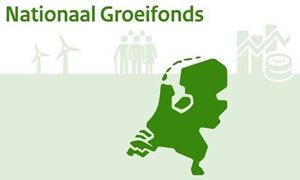
Two researchers from Radboud university medical center receive a grant from the Dutch Cancer Society and the Foundation Kids Cancer Free of over 800,000 euros for cancer research. Harry Dolstra will initiate a study on improved immunotherapy for acute myeloid leukemia, and Merlijn Hutteman will conduct research on enhanced tumor detection through tumor-targeted imaging.
Ready-Made Natural Killer Cells for Improved Immunotherapy Against Acute Myeloid Leukemia (Harry Dolstra)
Acute myeloid leukemia (AML) is a malignant condition of the bone marrow and blood. Although aggressive chemotherapy initially shows good results, the disease can relapse at a later stage. Immunotherapy is a treatment for patients with various types of cancer where conventional treatments are insufficient. Previous research by Professor of Translational Immunohematology Harry Dolstra and colleagues demonstrated that Natural Killer (NK) cells, white blood cells that play a crucial role in our immune defense, can be safely administered to elderly patients with AML. In this new project, made possible by Foundation Kids Cancer Free, Dolstra together with researchers Anniek van der Waart and Willemijn Hobo, aims to develop ready-made NK cells enhanced with multiple chimeric antigen receptors and a growth factor, to better recognize AML cells and increase NK cell activation. This approach will enhance the likelihood of curing AML in patients of all ages.
Enhancement of Tumor Detection and Response Assessment Through Tumor-Targeted Imaging (Merlijn Hutteman)
The standard treatment for esophageal cancer is surgery, preceded by chemoradiotherapy. However, it is challenging to predict the effectiveness of this therapy, which can result in under- or overtreatment. Gastrointestinal surgeon and surgical oncologist Merlijn Hutteman receives the Young Investigator Grant from the Dutch Cancer Society. With this grant, he will start a study using multimodal tumor-targeted imaging to visualize tumors and lymph nodes (SPECT/CT and near-infrared fluorescence imaging). This technique aims to better differentiate malignant cells at the tumor site and in lymph nodes, enabling more personalized treatment. For patients who respond well to therapy, surgery might not be necessary. Moreover, identifying patients who do not respond to chemoradiotherapy could allow them to undergo the necessary surgery without delay, with improved tumor visibility.
More information
Pauline Dekhuijzen

wetenschaps- en persvoorlichter

_1.jpg?width=500&height=333&ext=.jpg&type=BlockColumn1Zoom1)




